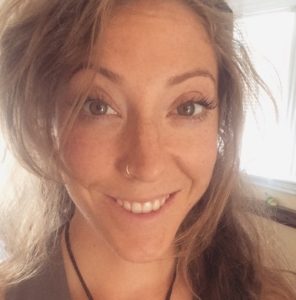
Courtney Battistelli’s interdisciplinary educational background and a diverse vocational repertoire includes a B.S in Public Health and Anthropology and a M.A in Clinical Mental Health counseling with Expressive Arts Therapy. During the last 3 years Courtney played the role of Study Coordinator in Boston, Massachusetts on the MAPS sponsored Phase 2/3 clinical trial researching MDMA-Assisted Therapy as a treatment for PTSD. The Boston site was run by the Trauma Research Foundation, a non-profit founded by Bessel van der Kolk who was also a Co-Clinial Investigator at the site.
Before entering the psychedelic research field, Courtney was working as an Expressive Arts facilitator in special education classrooms with children and young adults on the Autism Spectrum. During her graduate education she completed a year long Expressive Arts Therapy internship at a residential addiction treatment facility for young women. Her training as a Yoga and meditation teacher in 2014 influences how she approaches both vocational and personal pursuits.
Colloquium Presentation: 29 September 2023 (WS 105 3.30-5pm)
Co-ordinating a clinical trial investigating psychedelic-assisted therapy – a personal account
Abstract
In this presentation, I will explore on a subjective and poetic level what it was like to coordinate a a clinical trial researching Psychedelic-Assisted Therapy.
MAPS Public Benefit Corporation (MAPS PBC), a subsidiary of MAPS. has been compiling data from 18 MAPS-sponsored Phase 2 and Phase 3 studies to form the basis of the New Drug Application, expected to be submitted to the FDA within the next few months. Results of the most recent phase of the study were published in Nature Medicine earlier this month.
While efficacy and results on a scientific level can be found in the aforementioned article, I will look more at what it is to be a researcher in this rapidly changing, promising, and sometimes frightening field. What is the environment? The ethos? The ‘vibe’ of the clinic? Who is deemed fit to work with and support people in altered states of consciousness? How will the governing institutions responsible for legalizing these treatments honor the gap between western clinical ideologies and age-old ceremonial traditions with deep spiritual and cultural values at their core?